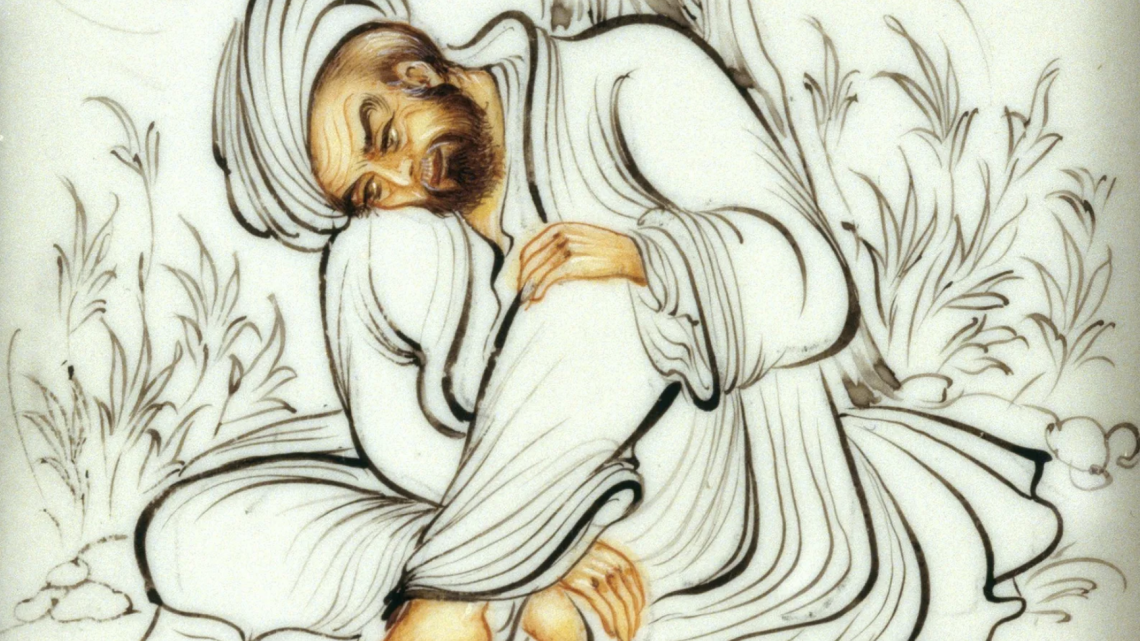
A painting of the poet Hafez-Shirazi. Introduction to World Poetry will be offered online during Winter Session 2023.
News directly from Cornell's colleges and centers
Winter Session 2023 introduces a new world poetry course
Dr. Alan Scott Weber on his new online class
By Shelley Preston
Thinking about taking a Winter Session online course? If you’re a Cornell student, you have until January 3 to enroll, and you might want to consider the session’s newest offering: Introduction to World Poetry.
Led by Alan Scott Weber, a professor of English who teaches humanities at Weill Cornell Medicine-Qatar, ENGL 2797 is three-credit course that, like most Winter Session courses, runs January 3 –20. 2023.
Cornell’s School of Continuing Education, which runs Cornell’s Winter and Summer Sessions as well as Precollege Studies for high school students, asked Dr. Weber what students can expect from his poetry course this January.
Thank you for telling us more about World Poetry, Dr. Weber. Which cultures will you be studying?
We’ll be studying authors from the U.S., Soweto, medieval Persia, Azerbaijan, India, Ireland, Palestine, Latin America, Japan, ancient Greece and Rome, South Africa and perhaps others. I encourage students to choose a poet in their native language and present them to the class translated into English.
What should students know about the challenges of interpreting poetry translated into English from other languages?
The translations used in class have been carefully selected in consultation with experts to determine the best interpretation of the original language. This is a question we discuss at length in the class.
What do you enjoy teaching about in this course?
Reading and analyzing poetry with students always provides me with new perspectives on specific poems, since students read the poetry through their own individual, cultural and social lenses.
What do you hope your students come away with by the end of the course?
I sincerely hope students leave with an appreciation of poetry and incorporate regular poetry reading—and possibly writing—into their lives. Students will be trained to recognize and admire the skillful use of the standard elements of poetic creation, including sound, meter and imagery. Students will also be trained in professional vocal performance—I am a trained singer—that can be translated directly into effective public speaking skills. They’ll be invited to take over the role of teacher and present a poet they have chosen and researched; and they will additionally offer a public recital of some of that poet's major works.
Do you have a short poem you can share that is an example of what you’ll be reading in this course?
We’ll probably discuss the poet Hafez-Shirazi. The translator, Gertrude Bell, was an interesting figure in her own right and travelled in and understood Middle East well. Additionally, the poem is a means of exploring European orientalism and colonialism:
Arise and Fill a Golden Goblet
"Arise! and fill a golden goblet up
Until the wine of pleasure overflow,
Before into thy skull's pale empty cup
A grimmer Cup-bearer the dust shall throw.
Yea, to the Vale of Silence we must come;
Yet shall the flagon laugh and Heaven's dome
Thrill with an answering echo ere we go!
Thou knowest that the riches of this field
Make no abiding, let the goblet's fire
Consume the fleeting harvest Earth may yield!
Oh Cypress-tree! green home of Love's sweet choir,
When I unto the dust I am have passed,
Forget thy former wantonness, and cast
Thy shadow o'er the dust of my desire.
Flow, bitter tears, and wash me clean! for they
Whose feet are set upon the road that lies
‘Twixt Earth and Heaven Thou shalt be pure,' they say,
'Before unto the pure thou lift thine eyes.'
Seeing but himself, the Zealot sees but sin;
Grief to the mirror of his soul let in,
Oh Lord, and cloud it with the breath of sighs!
No tainted eye shall gaze upon her face,
No glass but that of an unsullied heart
Shall dare reflect my Lady's perfect grace.
Though like to snakes that from the herbage start,
Thy curling locks have wounded me full sore,
Thy red lips hold the power of the bezoar-
Ah, touch and heat me where I lie apart!
And when from her the wind blows perfume sweet,
Tear, Hafiz, like the rose, thy robe in two,
And cast thy rags beneath her flying feet,
To deck the place thy mistress passes through."
-------
Cornell students have until January 3 to enroll in Introduction to World Poetry or dozens of other three- and four-credit courses in subjects including animal science, the arts, business and management, government, language, the sciences, physical education and more.
To learn more about Winter Session, visit the SCE website.
Visit SCE News for more stories on programs offered by Cornell's School of Continuing Education.
Shelley Preston is the School of Continuing Education and Summer Sessions’ communications and marketing specialist.
Media Contact
Get Cornell news delivered right to your inbox.
Subscribe
